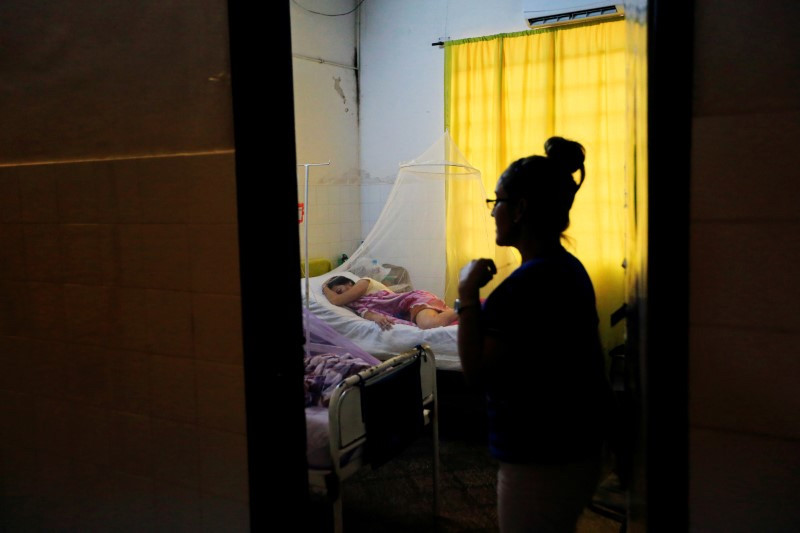The World Health Organization will on Thursday launch a plan to combat 20 diseases that affect the world’s poorest people, seeking to prevent recent progress being erased by the impact of COVID-19 on healthcare systems.
Many of the 20 neglected tropical diseases (NTDs), which range from leprosy to rabies, have been eradicated in the developed world, but together they affect more than 1.7 billion people in poorer countries.

A patient infected with dengue rests while receiving treatment at a hospital in Asuncion, Paraguay, on 16th January, 2020. PICTURE: Reuters/Jorge Adorno/File photo
Governments officially endorsed the 10-year road map for tackling NTDs in November, committing to sustain efforts that have seen at least one such disease eradicated in 42 countries over the last decade.
But the plan comes as efforts to alleviate diseases such as leprosy, elephantiasis, intestinal worms and rabies are being hampered by a worldwide pandemic pushing already strained healthcare systems to their breaking point.
“The one thing they [COVID-19 and NTDs] have in common is that they disproportionately affect the poorest and most vulnerable communities in the world,” said the WHO’s Mwele Malecela in an opinion piece for the Thomson Reuters Foundation.
“Their impact is felt more often than not by the very people who are least equipped to bear the burden of suffering and disability, not to mention the profound social and economic burdens of disease,” said Malecela, director of the WHO’s Department of Control of Neglected Tropical Diseases.
RELATED: Forgotten but not gone: COVID-19 focus poses new risks to ‘invisible’ leprosy patients
The WHO plan includes eliminating at least one of the 20 recognised NTDs in at least 90 countries by 2030.
It aims to make drugs safe and available and target the mosquitoes, flies and ticks that spread some NTDs, with a view to cutting the number of people requiring medical treatment for the diseases by 90 per cent over the next 10 years.
Medecins Sans Frontieres lauded past gains, but warned the pandemic could reverse much of the progress made over the last decade.
“NTDs almost exclusively affect people living in extreme poverty,” said the medical charity’s president Christos Christou in a statement.
“As a result, there are no vaccines, diagnostic tools are limited, and treatments are far from optimal and often unavailable or unaffordable for many of these deadly and debilitating diseases.”
Correction: The writer’s name has been corrected.




